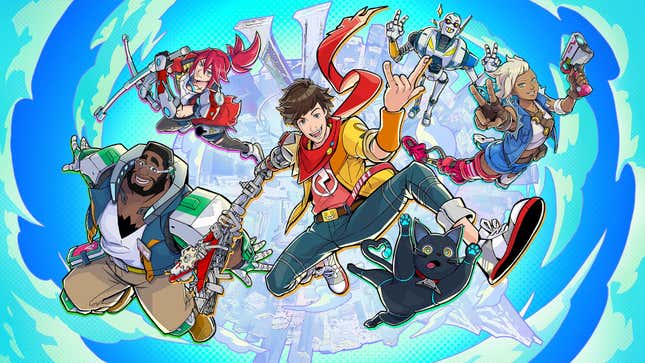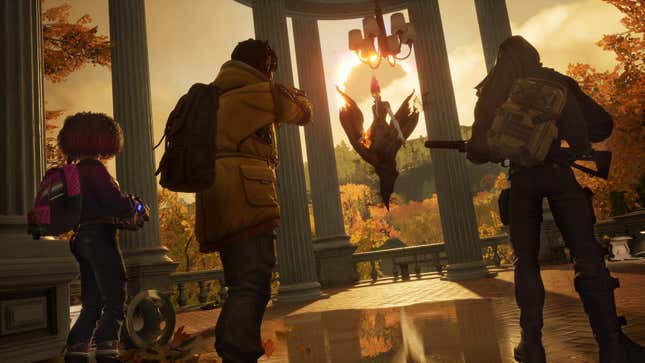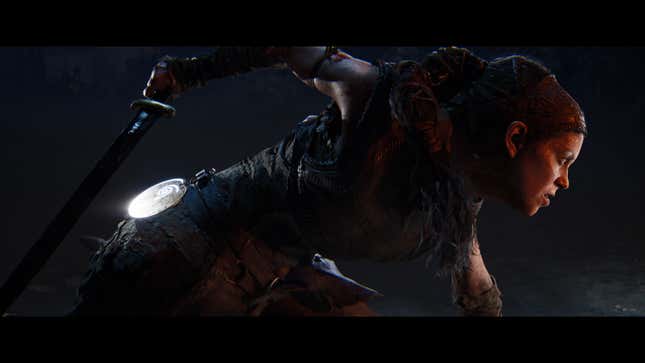
It has been a very bad week for Xbox Game Studios. On Tuesday, May 7, Microsoft announced it would shut down three studios: Redfall developer Arkane Austin, Hi-Fi Rush creators Tango Gameworks, and Mighty Doom studio Alpha Dog Games. On top of this, Roadhouse Games is being absorbed into Elder Scrolls Online developer ZeniMax Online Studios. It was a brutal day of carnage for the video game industry, and it cast a shadow over the Xbox brand. With services like Xbox Game Pass, Microsoft has long created an image of being pro-player and pro-game, all while spending billions of dollars to acquire companies and IP that had been operating independently, and paying lip service to the idea that, under the Xbox umbrella, these studios would remain free to create distinctive games that buck larger industry trends. To say that these actions call that reputation into question would be an understatement.
The fallout has spanned all sides of the industry. Fans are despondent after studios that created good games vanished. Developers are now polishing off resumes when they were just working on games moments prior to the announcement. And players and developers alike are wondering just what Xbox’s plan was when acquiring Bethesda and Activision Blizzard, if it’s resulted in shuttered studios and gutted games.
It’s a messy web, but let’s try to untangle it, starting with the initial announcement.
Xbox guts Bethesda’s stable of studios
It all started Tuesday, May 7. Xbox employees were sent an email from Matt Booty, head of Xbox Game Studios, informing them that Arkane Austin, Tango Gameworks, and Alpha Dog Games would be shuttering, and that Roadhouse Games would be folded into ZeniMax Online Studios. Booty’s email said this was so the company could focus on “high-impact” games. This meant Redfall’s DLC would be canceled, with Xbox saying it would provide “make-good” offers to people who’d pre-ordered.
Some roles across Bethesda’s publishing and corporate teams are also being eliminated so Microsoft can “invest more deeply in [its] portfolio of games and new IP.”
The public backlash was loud and immediate
Fans were shocked by the announcement. Redfall still had upcoming content its developers were working on up to the moment they were laid off. According to Xbox’s statements, Hi-Fi Rush had been a critical and commercial success even before it came to PlayStation 5 this year. The entire move felt senseless, and fans and developers mourned the affected studios.
These shutdowns followed nearly 2,000 layoffs across Xbox in January, primarily affecting workers at Activision Blizzard, another multi-studio company Microsoft acquired last year. Xbox’s business plan in recent years has been to buy existing studios and properties, ranging from giant companies like Bethesda and Activision to smaller studios like Psychonauts developer Double Fine and Hellblade studio Ninja Theory. Now that these acquisitions, rather than ushering in new eras of financial security and creative freedom for the studios, are seeing some of them shut down, Xbox’s strategy is being brought into question. Phil Spencer, the CEO of Microsoft’s Gaming division, who has been the face of the brand since 2014 and spearheaded Xbox’s pro-gamer image, is now under new scrutiny. One Fallout 76 player even nuked Spencer’s in-game camp. While that was weeks in the making, its timing was certainly celebrated.
Some industry figures like ex-Blizzard president Mike Ybarra called for sympathy for Spencer, claiming these layoffs hurt him “as much as anyone else,” comments which were criticized as insensitive to the lives that had been uprooted by these decisions.
A viral clip of Spencer and current Xbox president Sarah Bond started circulating again in which the two spoke about Lionhead Studios. The team was known for creating the Black & White and Fable games, and was acquired by Microsoft in 2006 and shut down in 2016. The clip in question has Bond and Spencer discussing how they wanted to reflect on that experience and not make the same mistakes that led to that closure. Spencer said, “You acquire a studio for what they’re great at now, and your job is to help them accelerate how they do what they do. Not them accelerate what you do.” Here we are, eight years later, and it seems developers are still punished for both live-service pivots and experimental passion projects.
Internally, Xbox employees are getting mixed messages
Following this announcement, Xbox held a town hall meeting for its employees, leading to internal confusion. As reports of what leadership said surfaced, the comments painted conflicting images of Xbox’s strategy in light of its actions this week. According to Bloomberg, Booty did not specify why Tango Gameworks was shut down but still praised Hi-Fi Rush. However, he did claim Arkane Austin’s shutdown was not tied to Redfall’s poor reception and performance.
While the contrasting performance of these studios was declared a nonfactor in their closure, Booty suggested that one thing which did contribute to the decision was the fact that they had just released games in 2023 and would likely not see another release for several years. Tango Gameworks was reportedly getting ready to pitch a sequel to Hi-Fi Rush, while Arkane Austin was looking to work on an “immersive sim” game similar to the studio’s previous work, such as Dishonored and Prey.
Booty also claimed that Xbox and Bethesda’s resources were spread too thin, reportedly comparing those resources to “peanut butter on bread.” According to Jill Braff, the head of ZeniMax Studios, this was meant to streamline Bethesda so that it could focus on fewer games at once.
“It’s hard to support nine studios all across the world with a lean central team with an ever-growing plate of things to do,” she said.

The criticism then becomes: If Microsoft didn’t have the bandwidth and resources to support an entire company with several studios under its umbrella, was it not irresponsible to acquire them in the first place? But perhaps the most maddening part of this is a quote from Booty, from the town hall, posted by The Verge. When discussing Xbox’s goals moving forward, Booty said the company needed “smaller games that give us prestige and awards.” This came just a day after shutting down Tango Gameworks, which released Hi-Fi Rush to near-universal critical acclaim, nominations, and wins at the biggest award shows in the industry, and according to Microsoft, was a “break out hit” that met its expectations.
The remarks put a bad taste in people’s mouths, especially for ex-Tango Gameworks employees. Hi-Fi Rush creative director John Johanas responded with an image of a very tired Peppermint. If meeting all the expectations of your corporate overlords isn’t enough to keep your job safe, what is? That is the question on many people’s minds, and Xbox’s response has landed like a ton of bricks.
Externally, Xbox’s messaging is also bad
Xbox’s employees may not be satisfied with how leadership communicates internally, but the company’s public response has also been poor. In an interview with Bloomberg, Bond was asked why Hi-Fi Rush’s success didn’t ensure Tango Gameworks’ safety in these layoffs. Her full response was as follows:
You know, one of the things I really love about the games industry is it’s a creative art form. And it means that the situation and what success is for each game and studio is also really unique. There’s no one-size-fits-all to it for us. And so we look at each studio, each game team, and we look at a whole variety of factors when we’re faced with sort of making decisions and trade-offs like that. But it all comes back to our long-term commitment to the games we create, the devices we build, the services and ensuring that we’re setting ourselves up to be able to deliver on those promises.
Bond’s response dances around the question and has been criticized by fans and industry figures alike for coming off as if she wasn’t properly prepared to discuss the shutdowns. Whatever the case, it has contributed to the loss of trust in the Xbox brand that has permeated this past week.
Fans are worried about the future of Xbox
With seemingly no guarantee of stability at Xbox, fans are concerned about upcoming projects from the company, and the fate of studios that remain under its auspices. Senua’s Saga: Hellblade II is coming out on May 21 from Ninja Theory, and fans joked about how poorly this fact had been publicized until a tweet from artist @FleurashDesign pointed it out. This may have prompted Xbox to put out a post of new key art and a reminder that the release date is mere weeks away. It was met with dozens of responses remarking about how little Xbox had promoted the game leading up to launch. The game had a round of previews go up in April, but it still doesn’t feel like the game is getting the support from Xbox that it needs and deserves if it’s going to have a real shot at whatever version of success the company needs to avoid the fate of its peers.

But even if Hellblade II or any of Xbox’s current projects turn a profit, these studio shutdowns have eroded some faith in the Xbox brand. Its years-long focus on buying studios and trying to build a stable that rivals those of Sony and Nintendo has mostly resulted in destruction for studios that were promised space to create freely, learn from failure, and maintain their own identity. Now, these storied teams aren’t getting clear communication about what success at Xbox looks like. Fans have been supporting services like Game Pass because this is what they were told would keep the brand afloat, and now one of its biggest success stories wasn’t enough to keep a studio’s doors open. Uncertainty has surrounded Xbox for years as it seemed to be making plays to stop competing in the console space while promising the brand was still strong. Still, even if its consolidation strategy was objectionable, it was at least comprehensible. Now, even the vision Xbox had feels like a lofty ideal, as success isn’t enough to guarantee you so much as a life preserver before the company lets the studios it bought drown.





